A Good Partnership
Genki Designs and Rainbow Life are two ethical businesses that share the same values and ethos. Both companies put a strong emphasis on the environment, inclusivity, fair trade and transparency throughout their supply chains.
The partnership between Genki Designs and Rainbow Life makes perfect sense. Both our companies prioritise ethical and sustainable practices and offer products that are unique and one-of-a-kind. The partnership will allow customers to experience a range of eco-conscious and wellness products, including upcycled clothing, handcrafted décor and sustainable skincare.
Genki Designs is an eco-fashion label that makes unique clothes from upcycled vintage Indian silk. Founder Camille Dawson fell in love with vintage silks while going through her grandmother's wardrobe as a child. She was disappointed by the lack of affordable, vibrant and unique clothes available on the market as an adult. Camille became acutely aware of the damage the fast fashion industry has on the environment and had mixed feelings about her love for clothes. Eventually, she found her inspiration while traveling in Rajasthan, India, where she discovered the beauty of upcycling vintage silk saris. Transfixed by the notion that as each silk sari was recycled, every piece had its own little history, its own personal story. Today, Genki Designs works with independent tailors and fabric traders in Rajasthan to create one-of-a-kind, high-quality pieces.
Rainbow Life was born out of a desire to support people's well-being during the Covid-19 pandemic. I was a teacher at a special needs school and saw first-hand the impact of the pandemic on my students' mental health. I decided to create wellness packages filled with ethical and sustainable products to lift people's spirits. Rainbow Life's offerings include wellness, handcrafted and upcycled products. Everything is sourced from independent, ethical brands that share Rainbow Life's values of transparency, inclusivity, fair trade and environmental sustainability.
Prior to my teaching career I had the unique privilege of living and working in a Karen hilltribe village in northern Thailand. I witnessed first-hand the immense amount of physical labour that the Karen people put into their work and gained a deep respect for their skills and traditions. Despite the challenges they faced, the community maintained a strong sense of resilience and pride in their way of life.
This experience left a lasting impression and I have always felt an inextricable link to the Karen people who had unquestioningly welcomed me into their lives and helped me participate in their way of life. After many years of teaching special needs children in the UK, I decided to pursue my dream of reciprocating to the Karen people.
This dream became a reality when I started an ethical business. My experiences had taught me that the products we consume are closely linked to the stories of the people who produce them. I wanted to create a platform where all participants are equally valued and heard, each integral to the whole; to create a bridge between peoples, where consumers and producers can feel connected. RainbowLife aims not only to promote economic empowerment for artisans and producers but also to raise awareness of the plight of marginalised communities.
The RAINBOWLIFE- GENKI PARTNERSHIP will allow a sharing of values with a wider audience. Both companies are committed to being transparent and socially conscious throughout their supply chains. By working together, we can amplify our message and encourage more people to support ethical and sustainable businesses.
Our Commitment to the Circular Economy and our Stand against Fast Fashion.
As companies committed to sustainability and environmental responsibility, we take pride in our mutual commitment to the circular economy and our stand against fast fashion. We recognize that our business practices can have a significant impact on the planet, and we strive to minimise that impact while contributing to the betterment of society as a whole. Our focus on the circular economy and our opposition to fast fashion are two key ways that we demonstrate this commitment.
The circular economy is a model of economic development that is designed to reduce waste and keep resources in use for as long as possible. It is based on the principles of reuse, repair, and recycling, and it seeks to create a closed-loop system in which resources are constantly circulated and reused. By adopting this approach, the aim is to minimise the amount of waste we generate and reduce our reliance on finite resources.
We believe that fast fashion is one of the most significant threats to the planet today. This industry is characterized by rapid turnover, low-quality garments, and exploitative labour practices. It encourages consumers to buy more and more clothes, which are often discarded after only a few wears. We believe that fast fashion perpetuates inequality and exploitation, and we are committed to breaking this cycle.
Our commitment to the circular economy is reflected in every aspect of our business, from the materials we use to the way we package our products. We use recycled materials wherever possible, and we aim to offer products that can be recycled or reused at the end of their lifecycle.
We recognize that the circular economy is not just about reducing waste and preserving resources; it is also about creating a more equitable and sustainable society. By adopting this approach, we aim to create a more inclusive and just world in which everyone has access to the resources they need to thrive.
Our mutual commitment to the circular economy and our stand against fast fashion is not just a matter of business strategy; it is a fundamental part of who we are as companies. We believe that by curating high-quality, sustainable products and promoting responsible business practices, we can help to create a better world for future generations. We are committed to this vision, and we invite our customers, partners, and suppliers to join us in this journey towards a more sustainable future.
Camille’s story is an inspiration to us. She is a small business owner who recognised the fast fashion industry's detrimental effects on the environment and the people involved in its production. She made a commitment to only use sustainable materials and to support the movement towards a circular economy by repurposing old fabrics into new designs. Camille’s commitment to sustainability and the circular economy is in line with RainbowLife’s values, and we are proud to feature her products on our website.
We share Camille’s stand against fast fashion and are committed to promoting a circular economy. The fast fashion industry is notorious for its negative impact on the environment and the people involved in its production. By offering sustainable and fair trade products that last longer and promoting the circular economy, we aim to offer an alternative to fast fashion and promote a slow living lifestyle.
At RainbowLife, we are committed to offering our customers products that are not only ethically sourced and sustainable, but also support small businesses and communities around the world. This is why we are proud to partner with Genki, a social enterprise that shares our values and commitment to the circular economy.
Partnering with Genki allows us to expand our range of sustainable products and support even more communities around the world. Genki's commitment to empowering marginalised groups through entrepreneurship and training is inspiring. We believe that by working together, we can make a positive impact on the world and promote a more sustainable and equitable future. We hope you enjoy browsing our selection of products and find something that resonates with you, knowing that every item you purchase helps to support a small business or community somewhere in the world. Thank you for joining us on this journey towards a more sustainable and ethical future.


See here for our collections of Genki Designs. We have a range of vibrant shirts and tops. Watch this space for kimonos, trousers and dresses to follow.

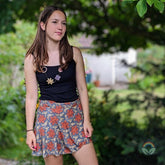
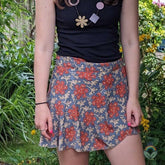
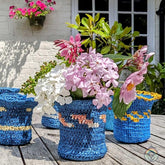

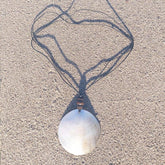





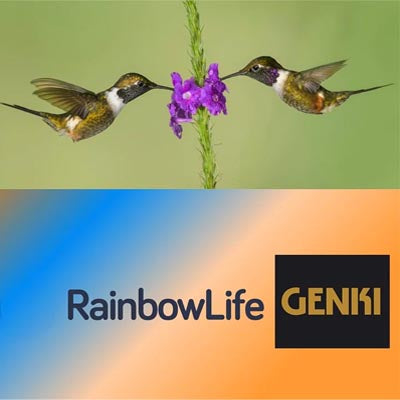
1 comment
I love the idea of this, but am deeply saddened that so much of the ladies ethical fashion is made for less than size 14. Statistically, you’re excluding 67% – yes, two thirds – of women in the UK. Standard sizing is not inclusive… Guess I’ll have to forgo the beautiful wrap tops and kimonos.
Leave a comment
All blog comments are checked prior to publishing